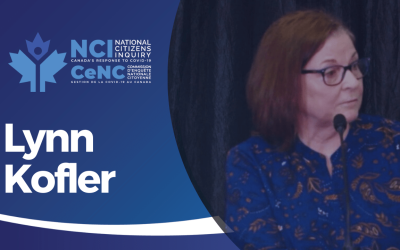On the heels of the Chaoulli case in Québec, Manitoba is witnessing a confrontation between the Maples Surgical Centre, which will offer fast MRI scans to paying consumers, and the Minister of Health, who seeks to prevent this. Provincial governments are not acting fast enough to provide true access, so providers outside their authority are responding to that need. Sitting on a waiting list is not the same thing as access to health care.
The Maples clinic has acquired an MRI machine designed to scan extremities. Just like cosmetic procedures, such scans are considered “elective” outside a hospital, and within the law can therefore be privately purchased outside the government system. Waiting lists for such scans through the Winnipeg Regional Health Authority are long, and patients on them suffer from a diminished quality of life, often in considerable pain. The prospect of an alternative should be welcomed.
Health Minister Tim Sale claims that another choice will harm Medicare. In fact, other jurisdictions that combine universal, tax-funded healthcare with private providers demonstrate the opposite. Rather than harming the system, the option of using private services improves outcomes, lowers costs and shortens waiting lists. Because the clinic is privately staffed, funded and operated, its “queue-jumping” patients are helping to alleviate the burden on the public system.
Every patient who chooses to be scanned at the Maples is one fewer patient on the public waiting list. Once private MRIs are available, those who cannot afford private treatment will endure shorter waiting times than they do now. Those who purchase healthcare services outside the public sector will continue to pay taxes, and will contribute no less to the financing of government healthcare despite paying for their own.

For both patients and providers, the Maples MRI service is excellent news. Patients on long waiting lists for MRI scans already have the option of purchasing the service privately and promptly – but they must travel to the United States to do so. This outpatient procedure costs around $1,000, not including travel, accommodation and other expenses. The Maples clinic will charge $695 for the same service, which makes private MRIs more affordable to Manitobans than they are today. Far from hurting consumers, the provision of this service will empower them by offering an alternative to lengthy waits, and by lowering the cost of private care significantly.
The fiscal burden on the public health care system will be eased, as each procedure paid for privately at the Maples clinic is one less procedure that the province must fund. Health care professionals will also benefit from more variety in their choice of employers, and will be less vulnerable to the monopoly on healthcare employment currently held by the province.
The disgraceful waiting times for medical care in this province are a function of that stranglehold. A private appointment with a psychologist can be arranged quite quickly, while out-patient treatment by a government one requires an extensive wait, despite the fact that both have similar educational and operating expenses. Family doctors have waiting lists or simply refuse to accept new patients, and referrals to specialists take weeks or months. But veterinarians, dentists and chiropractors, all without bureaucratic constraints, can usually accommodate new clients immediately. All of these professionals must finance extensive and costly education, as well as offices and equipment. The shortage of the former and the availability of the latter are functions of a government that over-regulates medical provision and its cost, rather than allowing the market to implement efficiencies and reward innovation.
Canadians don’t want universal healthcare to be replaced with a completely private system. But the beauty of private specialists like the Maples is that all healthcare providers and consumers can benefit from market competition, which increases options for patients and staff alike, and puts serious pressure on the government to ensure that publicly funded healthcare matches the best private care available. Under Britain’s National Health Service, for instance, benchmarks for public healthcare are set in comparison with the parallel private system. Managers are expected to ensure that their services remain comparable in outcome and efficiency to those of the private sector.
Private clinics offer a safety valve for the public system when it is under great strain. Faced with growing wait lists, the government has no option but to force patients to wait for diagnosis and treatment, or in extreme cases to pay for treatment in another province. At times of greatest demand, the government will now be able to contract with efficient private clinics with excellent outcomes.
The creation of private clinics that complement the public system will put pressure on government to become more responsive, will improve health care and shorten wait times for private and public consumers, and will increase accountability in the field of government with the fastest-growing expenditures. This is a development to be applauded.
(Rebecca Walberg is an associate researcher with the Frontier Centre.)



